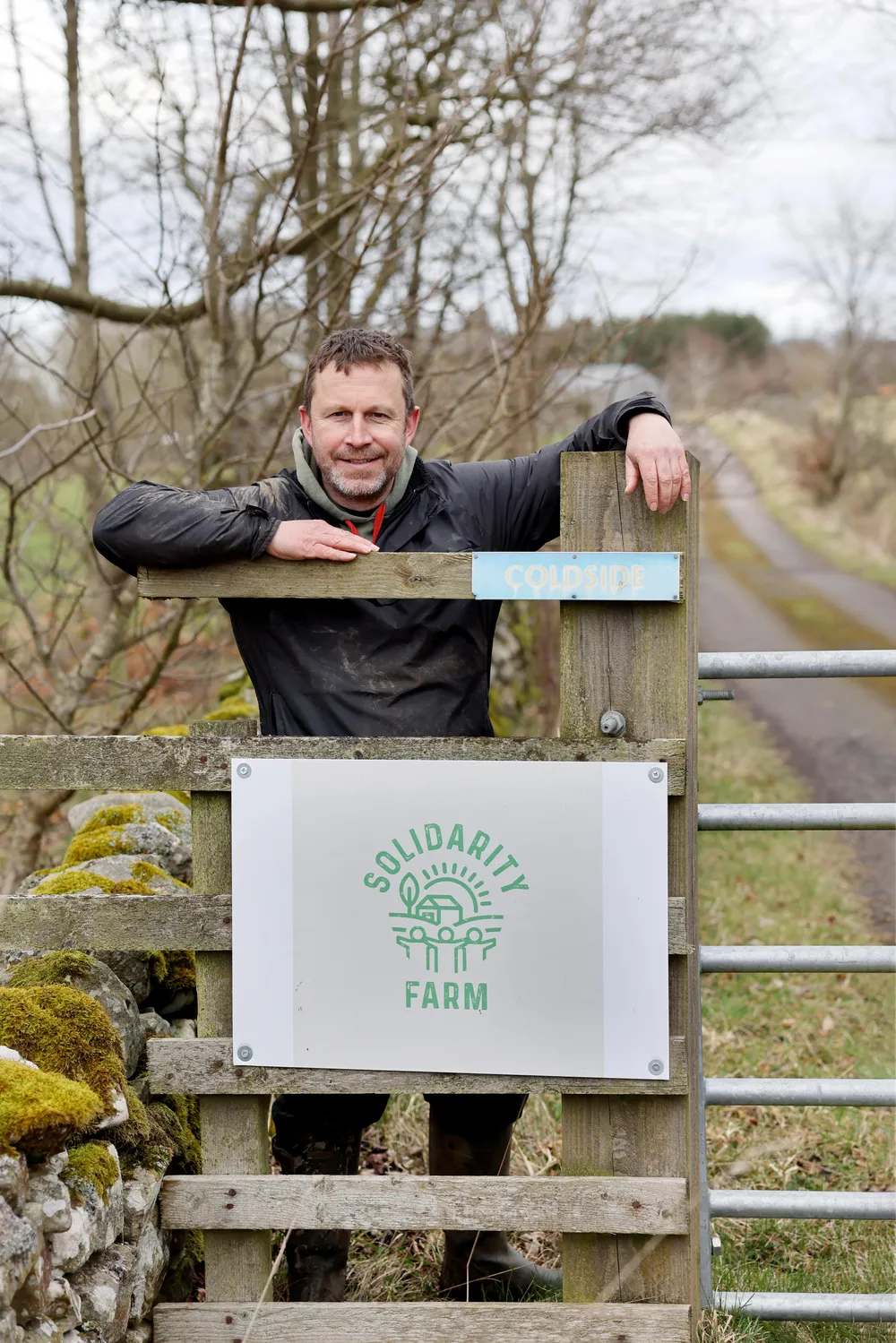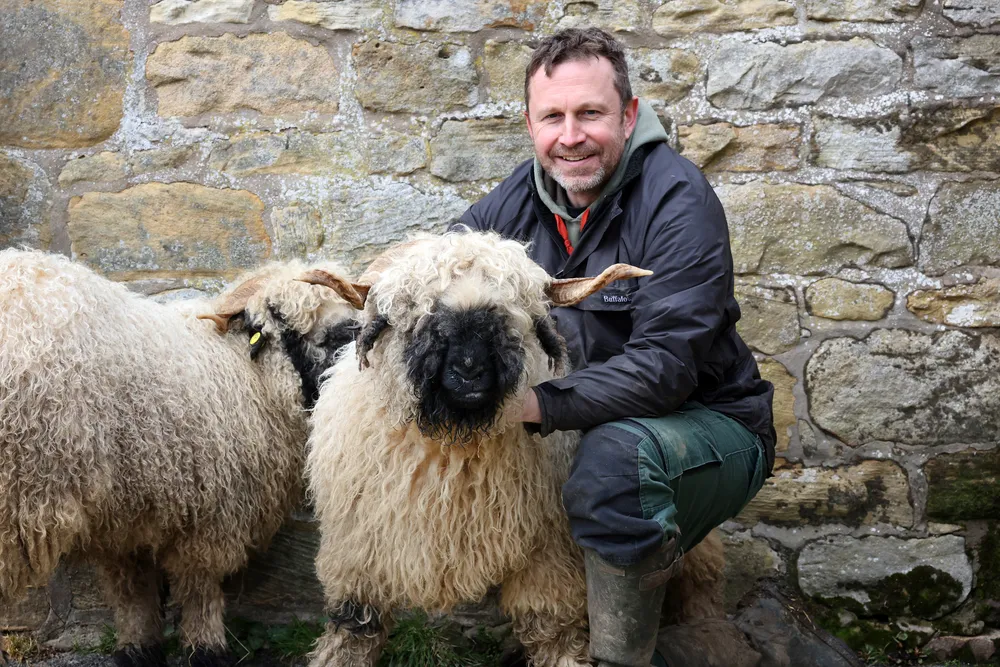John Harrison: Introducing social farming to Northumberland
John Harrison: Introducing social farming to Northumberland
John Harrison: Introducing social farming to Northumberland
Author
A career in agriculture looked certain for John Harrison, who came from a farming background and was working on his family’s organic livestock farm in Northumberland.
But a decision to leave farming to volunteer for development projects in Liberia and Malawi, then going on to work for a homelessness charity, set him on a very different trajectory.
And it was his Churchill Fellowship in 2019 which led him to combine his two passions: farming and supporting marginalised people who would most benefit from connecting with nature.
“When I went overseas to work in development, I started off volunteering for projects connected to areas like sanitation, HIV and Aids, and maternal health. In Liberia, I was based with a charity providing schools meals. Volunteering then turned into paid employment.”
John returned to the UK to take a role with a homelessness charity, Emmaus, and for a period of time he was on the UK board.
It was then he had his lightbulb moment: could he combine farming, and the benefits it brings in terms of nature connection, with helping people in crisis, such as those who were homeless or recovering from addiction.
“The Fellowship was a gamechanger... It has let me look at the world through a different lens, and given me time way to explore what is possible.”
How farming helps those in recovery or crisis
John successfully applied for a Churchill Fellowship in 2019, with the aim of looking at how farming could help people in recovery and facing homelessness.
He travelled to Norway, Belgium, Italy, the Netherlands and Canada. All had a strong background in social farming, with well embedded networks into health and education.
“The goal with social farming is to use a farm for wider societal benefits, including health, social care and education, so connecting people to the food system.”
John’s eyes were opened to the possibilities social farming offered. At a farm in Norway, he saw how horses were being used to connect young people to nature. In Italy, he visited San Patrignano, which runs recovery programmes for people suffering from addiction and those who have been marginalised.
Turning a family farm into a centre for nature connection
Back in the UK, John was awarded a scholarship to study for an MBA at Newcastle University, and then began working for an organisation running forest school projects.
Thanks to a grant from the Churchill Fellowship’s Activate Fund, and with his family’s blessing, John then set about creating a centre at their Northumberland farm, for people to experience the benefits of connecting with nature.
The Solidarity Farm was born, and this has now become a learning environment, where children and young people, who are not thriving in mainstream education, can experience the benefits of nature, cultivate social-emotional skills and build confidence.
“We have some great outcomes. One 16-year-old lad, who has struggled to stay in school, and who didn’t know much about farming, has been coming to us since January and now has a place at college to study agriculture.”
John is also working with Newcastle University, to share what he has learnt with other farmers, and explore how the Solidarity Farm model might be extended.
John believes his Fellowship, and the Activate Fund grant were transformational.
“The Fellowship was a gamechanger and without the Activate Fund I wouldn’t have got started. It has let me look at the world through a different lens, and given me time way to explore what is possible.”
But a decision to leave farming to volunteer for development projects in Liberia and Malawi, then going on to work for a homelessness charity, set him on a very different trajectory.
And it was his Churchill Fellowship in 2019 which led him to combine his two passions: farming and supporting marginalised people who would most benefit from connecting with nature.
“When I went overseas to work in development, I started off volunteering for projects connected to areas like sanitation, HIV and Aids, and maternal health. In Liberia, I was based with a charity providing schools meals. Volunteering then turned into paid employment.”
John returned to the UK to take a role with a homelessness charity, Emmaus, and for a period of time he was on the UK board.
It was then he had his lightbulb moment: could he combine farming, and the benefits it brings in terms of nature connection, with helping people in crisis, such as those who were homeless or recovering from addiction.
“The Fellowship was a gamechanger... It has let me look at the world through a different lens, and given me time way to explore what is possible.”
How farming helps those in recovery or crisis
John successfully applied for a Churchill Fellowship in 2019, with the aim of looking at how farming could help people in recovery and facing homelessness.
He travelled to Norway, Belgium, Italy, the Netherlands and Canada. All had a strong background in social farming, with well embedded networks into health and education.
“The goal with social farming is to use a farm for wider societal benefits, including health, social care and education, so connecting people to the food system.”
John’s eyes were opened to the possibilities social farming offered. At a farm in Norway, he saw how horses were being used to connect young people to nature. In Italy, he visited San Patrignano, which runs recovery programmes for people suffering from addiction and those who have been marginalised.
Turning a family farm into a centre for nature connection
Back in the UK, John was awarded a scholarship to study for an MBA at Newcastle University, and then began working for an organisation running forest school projects.
Thanks to a grant from the Churchill Fellowship’s Activate Fund, and with his family’s blessing, John then set about creating a centre at their Northumberland farm, for people to experience the benefits of connecting with nature.
The Solidarity Farm was born, and this has now become a learning environment, where children and young people, who are not thriving in mainstream education, can experience the benefits of nature, cultivate social-emotional skills and build confidence.
“We have some great outcomes. One 16-year-old lad, who has struggled to stay in school, and who didn’t know much about farming, has been coming to us since January and now has a place at college to study agriculture.”
John is also working with Newcastle University, to share what he has learnt with other farmers, and explore how the Solidarity Farm model might be extended.
John believes his Fellowship, and the Activate Fund grant were transformational.
“The Fellowship was a gamechanger and without the Activate Fund I wouldn’t have got started. It has let me look at the world through a different lens, and given me time way to explore what is possible.”



